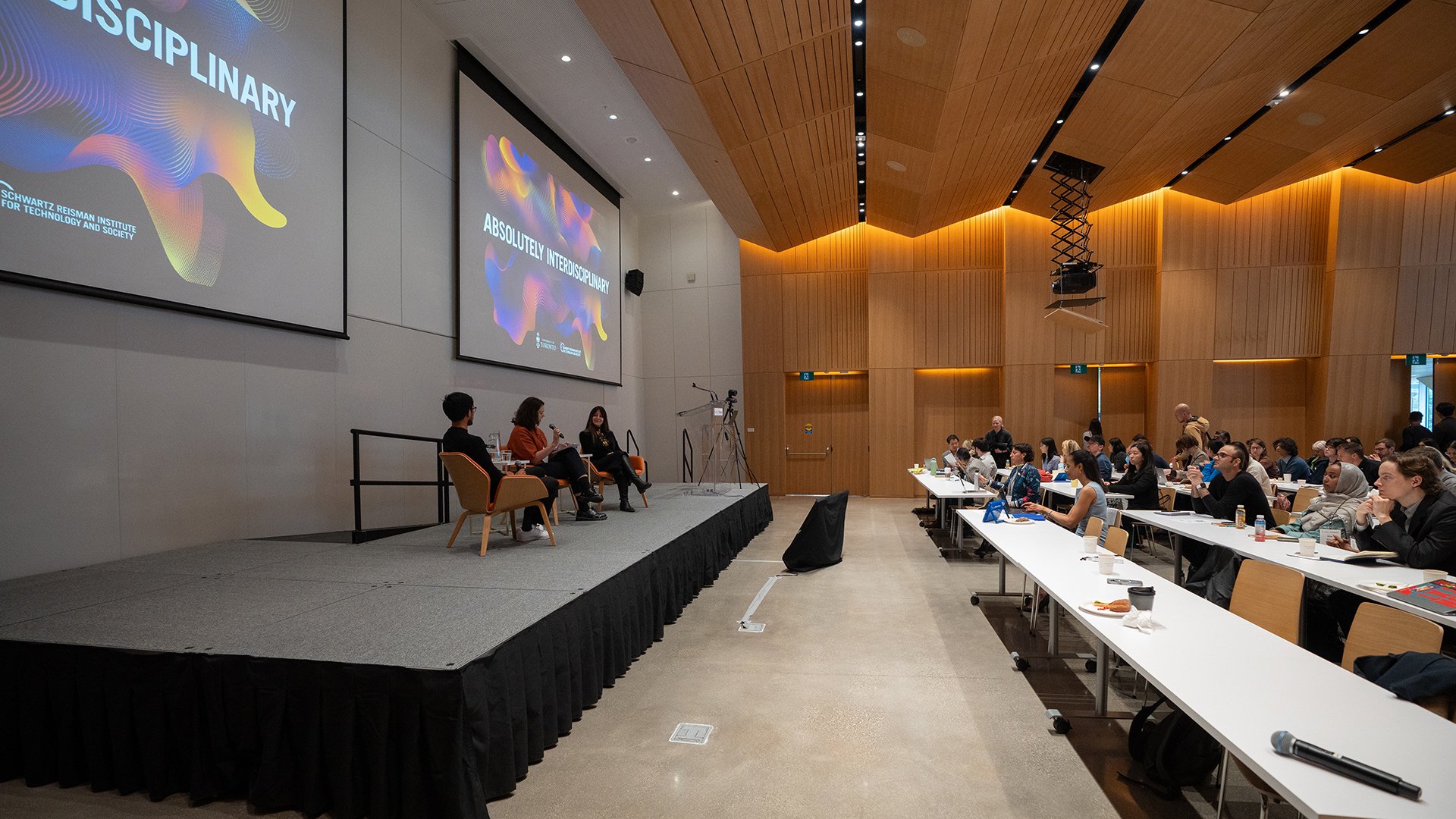WHAT’S HAPPENING
Here’s what we’re thinking about, talking about, and working on at the Schwartz Reisman Institute.
AI companions: Regulating the next wave of digital harms
From AI chatbots marketed as digital partners to voice assistants designed for intimacy, these systems promise connection while raising urgent questions about privacy, manipulation, and digital addiction.
Eight research leads drive SRI’s mission forward with new projects
With two new appointments and six renewed roles, the Schwartz Reisman Institute’s 2025–26 cohort of research leads will advance projects on trust, creative pedagogy, agentic AI, democratic fairness, and human–machine relationships, fostering public dialogue and policy insights on the transformative role of advanced technologies like artificial intelligence.
SRI Seminar Series continues in fall 2025 with leading voices on technology and society
The Schwartz Reisman Institute is proud to announce its SRI Seminar Series programming for Fall 2025. This semester, an extraordinary lineup of scholars, technologists, and legal thinkers will examine urgent issues at the intersection of technology, governance, and society. Through thought-provoking presentations of new research and ideas, the series will explore topics ranging from the ethics of AI in education and the creative industries, to the governance of advanced AI systems, to the social and political dynamics of democratic engagement in the digital age.
Schwartz Reisman Institute welcomes 24 new faculty affiliates for 2025–26
The Schwartz Reisman Institute is pleased to announce the appointment of 24 new faculty affiliates for the 2025–26 academic year—its largest incoming cohort to date. Representing a broad range of disciplinary backgrounds, the new affiliates bring deep expertise in artificial intelligence (AI), data science, public policy, digital culture, healthcare, ethics, law, sustainability, and education.
Absolutely Interdisciplinary 2025 explores new frontiers in AI research
At SRI’s annual conference, participants discussed future directions and key challenges in AI research, including the complexities of aligning advanced AI with human values and interdisciplinary perspectives on AI safety.
Schwartz Reisman Institute announces 2025–26 graduate fellows
The Schwartz Reisman Institute for Technology and Society is proud to announce the appointment of fifteen new graduate fellows from across the University of Toronto.
AI agents pose new governance challenges
How do we successfully govern AI systems that can act autonomously online, making decisions with minimal human oversight? SRI Faculty Affiliate Noam Kolt explores this challenge, highlighting the rise of AI agents, their risks, and the urgent need for transparency, safety testing, and regulatory oversight.
Absolutely Interdisciplinary returns to explore new frontiers in AI research
The Schwartz Reisman Institute’s annual academic conference Absolutely Interdisciplinary returns for 2025 to explore interdisciplinary approaches to AI governance, risk and safety.
New cohort of SRI faculty affiliates and postdocs announced for 2025
The Schwartz Reisman Institute for Technology and Society (SRI) is thrilled to welcome eight new faculty affiliates and three new postdoctoral fellows to its vibrant research community.
Upcoming SRI Seminars showcase new insights on cutting-edge AI research
The SRI Seminar Series returns for 2025 with leading experts exploring AI’s impacts from a wide range of disciplines, including computer science, psychology, law, philosophy, and communication.
Information about our world: SRI/BKC workshop explores issues in access to platform data
What kinds of solutions should we consider for gaining access to data, and which purposes can justify this access? These and related questions were the topic of an event co-hosted by SRI and the Berkman Klein Center’s Institute for Rebooting Social Media at Harvard University coordinated by Lisa Austin.
SRI partners with Data Sciences Institute on “Toward a Fair and Inclusive Future of Work with ChatGPT”
Despite the growing use of ChatGPT, we lack a method to evaluate its performance and potential risks. SRI Associate Director Lisa Austin, Faculty Fellow Shion Guha, and Faculty Affiliates Anastasia Kuzminykh and Shurui Zhou are setting out to study and analyze the impact of generative AI on a wide range of communities. Learn more about "Toward a Fair and Inclusive Future of Work with ChatGPT."











